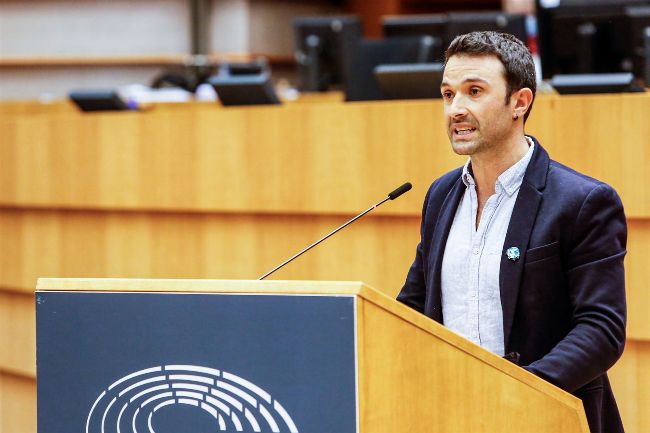The EU cohesion policy needs a universal basic income
Nowadays, the environment is a priority in the agenda of EU institutions, especially when we talk about the positive impact that rural areas can have on fighting and adapting to climate change.
Rural areas are fundamental to tackling climate change and that is why the farm to fork and biodiversity strategies, alongside other programmes, such as the common agricultural policy, are more eco-friendly than ever (this does not mean that they are eco-friendly enough in my opinion, but let us consider for the sake of argument that they are). We urgently need to change the way we produce goods and services in these regions, especially in agriculture, because it is still a very conservative industry and it lacks the proper environmental and economic impact analysis.
So, we need to push the ecological transition to another level. We need to go deeper. That is why we cannot talk about ecological transition without debating social and economic inequality. In rural areas, this is key to shifting towards a more de carbonised and fair society. If citizens do not have an income, in addition to public infrastructures and services, they are unable to make eco-friendly choices and will be conditioned in their educational and professional mobility investments.
But that is not all. These citizens will also be stuck in this steady but constant exodus that has been happening for decades because they lack economic opportunities. Such opportunities are mainly found in big cities and coastal areas.
Some say that, if Europeans have a decent and constant income, a more decentralised governance model, infrastructures and services, this will inevitably lead to a better and more dynamic social elevator , which is fundamental to guarantee prosperity in all regions and nations.
"If citizens do not have an income, in addition to public infrastructures and services, they are unable to make eco-friendly choices"
However, I believe there is still a major debate to be had in this complex economic and social equation. It circles around implementing a universal basic income (UBI) in key areas of Member States. First, we need to debate the topic and its findings, as there were several pilot projects around the world with some interesting results. Second, we need to plan several pilot projects in EU Member States and then assess what we need to change in our social and economic model to expand this income to more citizens.

Francisco Guerreiro is Member of the European Parliament, Vice president of the Committee on
Agriculture and Rural Development
Nowadays, work in these rural areas is often very fragmented, seasonal and focused on a handful of activities, especially on agriculture, so we need to make it more diverse. Therefore, we need more infrastructures and better internet access , roads, railways and public services, such as hospitals, schools and universities. In addition, the investment made in de carbonising rural areas will most likely increase technological unemployment and economic inequalities - jobs are being automated and are becoming more and more precarious.
We need an economic and social tool that guarantees that citizens can enjoy more freedom and independence, and can remain in or move to rural areas without being restricted by their income, which comes mainly from work. Quality of life will probably be better in a less crowded and less polluted area if citizens can earn some income from work, part- or full-time, in addition to earning monthly UBI.
There are several ways we can subsidise these pilot projects. These include using local or regional coins, financed by municipal, national or even, in the future, European budgets, and rethinking our social and economic model to make the social state more efficient and less bureaucratic. This does not imply the end of the social welfare state; on the contrary, it will be a much-needed upgrade.
We must urgently start UBI pilot projects in rural areas, so that we can truly understand how citizens, given the resources, can move and develop all regions of the EU and make a real cohesion policy.